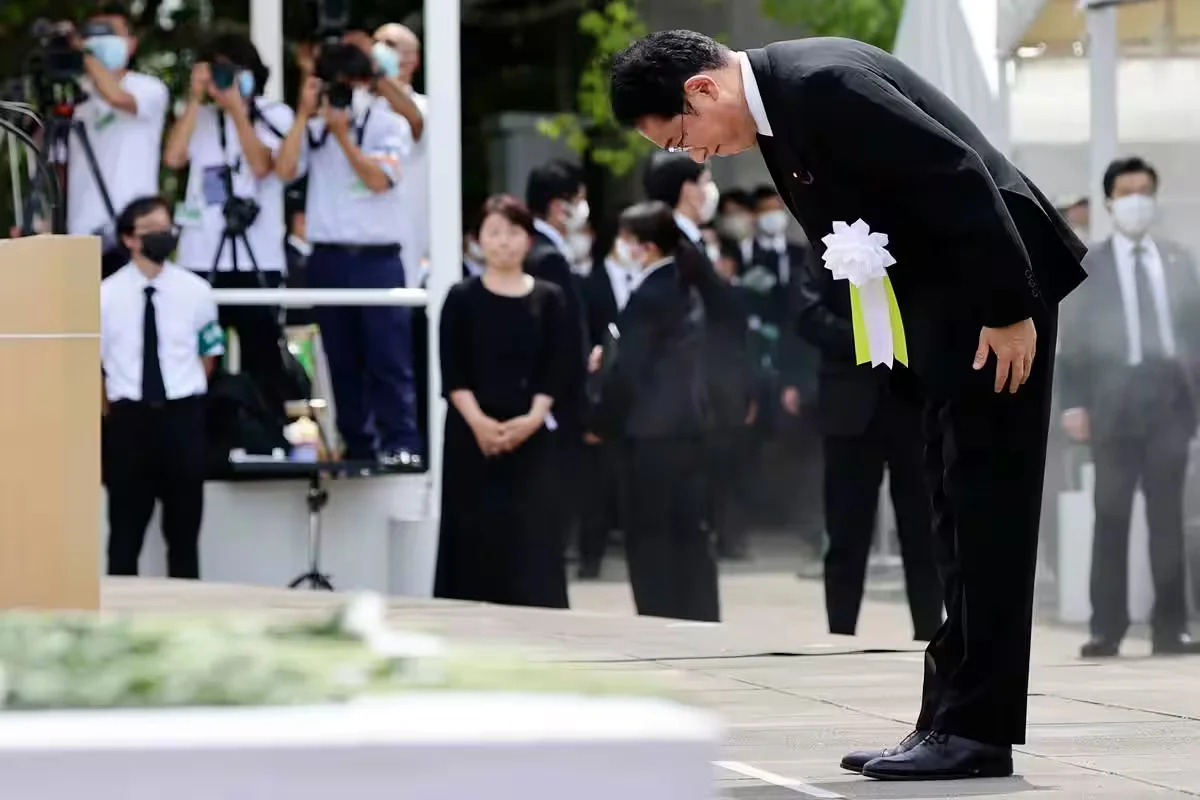As Japan solemnly commemorated the 78th anniversary of the devastating atomic bombings of Hiroshima and Nagasaki, the nation’s Prime Minister, Fumio Kishida, took the opportunity to denounce Russia’s recent nuclear threats. The historic bombings, executed by the United States on August 6 and 9, 1945, claimed the lives of approximately 140,000 in Hiroshima and 74,000 in Nagasaki.
Speaking at a poignant ceremony held in Hiroshima, Prime Minister Kishida, recognizing Japan’s singular experience as the target of atomic warfare, reaffirmed the country’s unwavering commitment to pursuing a world free of nuclear weapons. Kishida acknowledged the mounting challenges on this path due to the fractured global stance on nuclear disarmament and Russia’s concerning nuclear posturing.
The Mayor of Hiroshima, echoing these sentiments, used the occasion to rebuff the concept of nuclear deterrence championed by G7 leaders, branding it a “folly.” He passionately advocated for the complete eradication of nuclear weaponry to foster enduring global harmony.
Amidst the commemorative activities, a symbolic peace bell tolled at 8:15 am, mirroring the exact moment the devastating atomic bomb detonated. An outdoor memorial ceremony drew a crowd of around 50,000 attendees, including survivors of the bombings, who united in observing a poignant moment of silence despite temperatures soaring to 30°C (86°F).
Coinciding with the somber anniversary, Russian officials raised concerns by implying the potential use of nuclear weapons against Ukraine. However, Western sources questioned the validity of these assertions, with The Guardian reporting a dearth of conclusive evidence.
Hiroshima’s Mayor, Kazumi Matsui, urged global leaders to confront the reality that the current climate of nuclear threats exposes the inadequacies of the nuclear deterrence theory. Matsui implored leaders to heed the call to shun the looming specter of nuclear warfare.
Prime Minister Kishida acknowledged the complexities of the situation, acknowledging that Russia’s nuclear threats have compounded the challenge of achieving a nuclear-free world. Nevertheless, he emphasized the critical importance of reigniting international momentum towards disarmament.
UN Secretary-General António Guterres voiced his unwavering support, highlighting the transformational impact of Hiroshima visits on world leaders who leave inspired to champion nuclear disarmament. Guterres underscored the urgency of the moment, as the ominous echoes of nuclear conflict begin to reverberate once more.
The legacy of the atomic bomb, codenamed “Little Boy,” dropped on Hiroshima on August 6, 1945, continues to cast a long shadow over history. The catastrophe claimed countless lives instantly and left approximately 140,000 dead by year’s end, culminating in Japan’s surrender on August 15.




